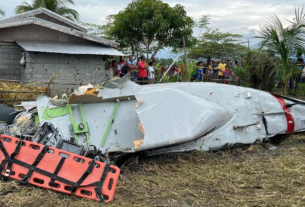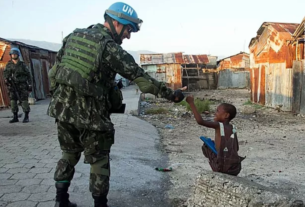By Lumine
THE HAGUE, Netherlands, In a high-stakes hearing before the International Court of Justice (ICJ), the United States defended Israel’s decision to limit humanitarian aid to Gaza, arguing that national security overrides international pressure to ease restrictions. The move has sparked intense criticism from human rights groups and global observers.
Joshua Simmons, a senior legal adviser at the U.S. State Department, told the court that international law does not obligate Israel to accept aid from specific organizations, especially the United Nations Relief and Works Agency (UNRWA).
“Occupation law preserves an occupying power’s discretion to address its security interests,” Simmons argued.
Israel has accused UNRWA personnel of involvement in the October 7, 2023 Hamas attacks, although a UN-led investigation found no credible evidence to support those claims. Nevertheless, Israel continues its blockade of Gaza, sharply limiting the flow of food, medicine, and essential supplies to the besieged population.
The ICJ is currently reviewing Israel’s obligations under international law regarding the delivery of humanitarian aid to Gaza. While the court’s rulings are legally binding, enforcement depends on the United Nations Security Council, where the U.S. holds veto power, a fact that could potentially block international action.
The U.S. defense of Israel’s blockade has drawn swift condemnation. Tom Fletcher, the UN’s emergency relief coordinator, called the policy “cruel collective punishment” and urged immediate removal of the restrictions to prevent a worsening humanitarian crisis.
On the ground, conditions in Gaza continue to deteriorate. Aid groups report widespread hunger, looting, and systemic shortages. The World Health Organization has issued a stark warning that children in Gaza are at extreme risk due to malnutrition and lack of medical access.
As the ICJ deliberates, the international community remains on edge, closely monitoring the outcome and its implications for humanitarian law, conflict zones, and the rights of civilian populations under siege.




